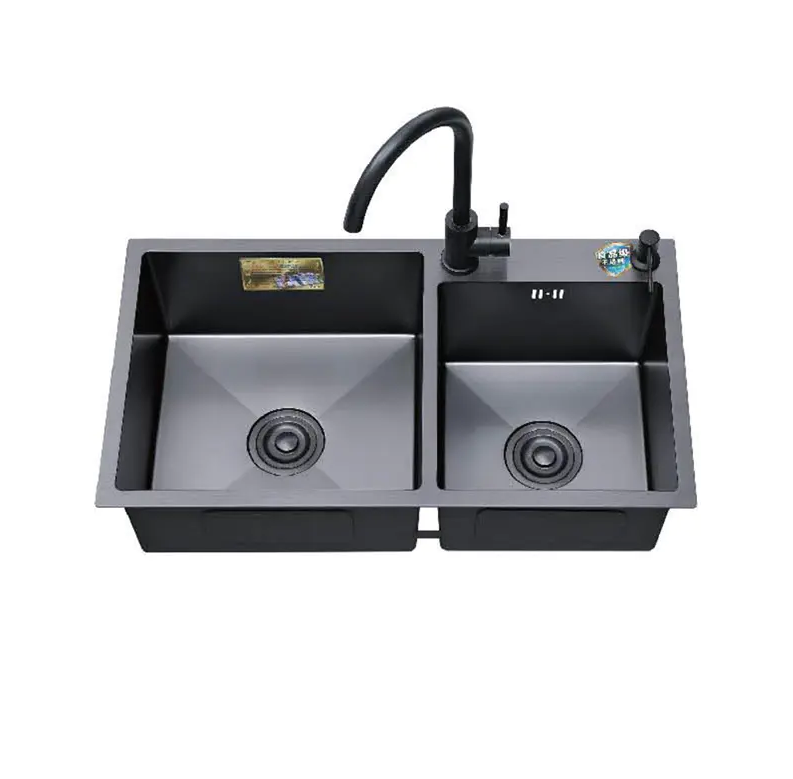Where to Find Critique Partners: A Writer's Complete Resource Guide

Best Places to Find Critique Partners for Writers in 2025/2026
And honestly? Finding a good critique partner is like dating, except the stakes are your actual manuscript. No pressure, right?
I get it. You've poured your heart into this story. You've typed until your fingers ached, deleted entire chapters at 2 AM, rewritten dialogue that made you cringe... and now you're sitting there thinking, "But does it actually work?" That's when the panic sets in. Because you can't see what's broken anymore you're too close to it. You need fresh eyes. You need someone who won't just tell you it's great (thanks, Mom) but will actually tell you where the plot holes are hiding.
Ugh, and the overwhelming part? You have no clue where to find these magical critique partner matching people in the first place.
Spoiler alert: They're everywhere. You just don't know what you're looking for yet. (Hence the article. You're welcome.)
The Reality About Critique Partners (Before You Start Looking)
First, let's get real for a second. A critique partner isn't your friend who's gonna read your book and smile politely. A critique partner is another writer someone who actually understands story structure, character arcs, and the difference between showing and telling. They're someone who'll tell you when your dialogue reads flat, when your pacing drags, when that whole subplot you're in love with? Yeah, it's gotta go.
And here's the kicker it's a trade. You give them feedback on their work. They give you feedback on yours. Equal effort. Equal investment. It's not a one-way street where you dump your manuscript and wait for them to work their magic.
The benefits of having a critique partner are honestly ridiculous once you find the right one. You get:
Fresh eyes on your manuscript that catch things you've been blind to for months. (Looking at you, overused word "that.") Big-picture feedback on plot, character development, pacing, and structure not just grammar fixes. Accountability and motivation when you're staring at revision notes thinking, "I can't fix this mess." A real person who gets it, because they write too. Networking opportunities, friendships, maybe even beta readers down the line.
But and this is important not every writer you meet is gonna be your person. Some will ghost you. Some will give feedback that's either too harsh or too vague. Some will try to rewrite your work entirely. That's just the reality of the search.
Where to Actually Find Critique Partners Online (That Actually Work)
Alright, let's talk about the digital spaces where writers hang out. Because let's face it, most of us spend more time scrolling through the internet than we do at coffee shops (even though we pretend we're working at coffee shops).
1. Dedicated Critique Partner Platforms (The Easy Route)
These websites basically exist for one reason: connect writers with other writers. Like matchmaking for manuscripts. Genius, right?
CritiqueMatch is probably the most organized option. You create a profile, search through 150+ categories (yes, really), and find partners by sub-genre, experience level, even favorite authors. You can message people who seem like your vibe, exchange work privately, and the whole site has a rating system so you know if someone's actually legit. Plus, if you rack up solid reviews, you can become a paid "Pro-Critiquer" and actually earn money. Not bad.
Critique Circle works on a similar model you earn points by giving feedback, then spend those points getting your own work critiqued. It's been around forever, so there's a massive community. Just know that you're gonna be sifting through a lot of feedback, and the quality varies.
The Critique Partner Connection (by Lauren Kay) is more of a searchable database. It's free, it's straightforward, and honestly? Some writers swear by it. The testimonials are actually touching people talking about finding their "dream partner" who changed their entire manuscript. (Which, okay, might be overstating it a little, but the feeling's real.)
Scribophile is one of the longest-running online writing communities (17+ years, if you're counting). Same point system vibe earn karma by critiquing, spend it getting feedback. The community is huge, and you'll get detailed critiques from people who actually know what they're doing.
2. Facebook Groups (Where All The Writers Are Apparently)
I know, I know. Facebook? Really? But genuinely, Facebook has become a haven for writer communities. You've got genre-specific groups, writing craft groups, groups specifically for finding critique partners...
Search "[your genre] + writers," "critique groups," or "critique partners," and you'll find hundreds of active communities. Join a few, lurk for a bit, get a feel for who's serious about their writing and who's just there to complain about not having time to write (okay, everyone's a little bit there for that).
The upside? You can see people's personalities in comments before you commit to working with them. The downside? It's social media, so yeah, you're gonna encounter some... characters. But that's not a dealbreaker. Just proceed with caution, as they say.
3. Goodreads Groups (The Bookish Angle)
If you're already on Goodreads (and let's be honest, you probably are), you might've noticed there are, like, a million groups. Many of them have critique partner matching threads. Search your genre, find active groups, scroll through the threads where writers are basically saying "Hi, I write fantasy romance, looking for a CP who loves enemies-to-lovers tropes."
It's less formal than the dedicated platforms, but it works. And you get the bonus of seeing what these people are actually reading, which tells you a lot about their taste.
4. Scribophile, Critique Circle, and Other Writing Workshopping Sites
These platforms aren't just about critique partners they're entire writing communities. You post work, get feedback, build relationships organically. And honestly? Some of the best partnerships form naturally when you're just out there doing the work, not specifically hunting for a partner.
The feedback quality tends to be higher on these platforms because there's actual structure. People know what they're supposed to be doing. There are guidelines. It feels less like you're throwing your manuscript into the void and hoping someone cares.
5. Writing Communities & Discord Servers (The Cool Kids' Hangout)
Reddit's r/writing community pops up pretty regularly with people asking for critique partners. Twitter has entire threads of writers using hashtags like **mwriting and **#writgcommunity to find partners. There are Discord servers dedicated to specific genres, specific experience levels, specific writing goals.
The vibe here is more casual, more real-time. You're actually talking to people, not just messaging through an interface. And sometimes that makes all the difference.
The Old-School Approach (Still Works, Somehow)
Before the internet decided to solve all our problems, writers found critique partners the hard way. Some of these methods are still surprisingly effective.
Local Writing Groups & Meetups
Your library probably hosts writer meetups. Your local bookstore might have a writing group. Meetup.com is still a thing search "writing groups" in your area and show up. (Yes, you have to actually leave your house. Rough, I know. But it might be worth it.)
The upside? You meet people face-to-face. You can instantly tell if there's chemistry. You're not wondering if this person is actually gonna ghosted you. Plus, smaller local groups tend to be more tight-knit.
Writing Conferences & Workshops
Not just for networking (though that's huge). Many conferences have specific sessions or matching events for critique partners. You show up, you talk to writers in your genre, and sometimes you click with someone and decide to stay connected.
Yeah, it costs money to attend. Yeah, it takes time. But the connections you make? Those can last years.
SCBWI & Other Writing Organizations
If you write for children or young adults, the Society of Children's Book Writers and Illustrators has message boards specifically for finding critique partners. If you write other stuff, there are probably similar organizations for your genre. A quick Google search will find them.
Okay, But How Do You Actually Vet These People?
Here's where it gets real. Just because someone says they're a writer doesn't mean they're gonna be a good critique partner. You're about to send them your life's work (okay, this chapter at least). You need to know what you're dealing with.
Red Flags (AKA, Don't Fall For These)
Vague, unhelpful feedback. If someone sends back comments like "Hmm..." or "I don't know, something felt off," they're not actually helping. A good critique partner tells you what and why. "This dialogue feels stiff because the characters sound identical consider differentiating their speech patterns" beats "This doesn't sound good" by about a million miles.
They try to rewrite your work. Your story's yours. A good CP points out problems and lets you fix them. A bad one sends back a manuscript covered in their rewrites, trying to turn it into something they'd write. Nope.
Needlessly harsh or rude. There's a difference between honest and cruel. "This subplot is dragging down your pacing" is honest. "This is garbage and you should be embarrassed" is unnecessary. You want directness, not cruelty.
They won't commit. If they're ghosting you on timeline, not following through on exchanges, constantly canceling they're not your person. A real partnership requires actual dedication.
They try to push you in a direction you don't want to go. You're writing cozy mystery, and they keep insisting you should add dark paranormal elements because that's "more marketable"? Yeah, no. They're not your partner. They're trying to rewrite your career.
They lack professionalism or reliability. Late feedback, sloppy notes, taking forever to respond these things matter. You need someone who takes your work as seriously as you do.
Green Flags (The Good Ones)
Specific, actionable feedback. They point to exact passages and say why something's not working. They might suggest concrete ways to fix it, but they leave the actual rewriting to you.
They ask clarifying questions. "Were you going for comedic timing here?" or "Did you mean for readers to be confused at this point?" These questions show they're actually thinking about your work.
They're enthusiastic about your story. Even when they're giving hard feedback, you can tell they care about it succeeding. They root for you.
They respect your voice and vision. They give feedback within the framework of your story, not their ideal version.
They're reliable. They meet deadlines. They give feedback in a reasonable timeframe. They don't ghost. They show up for the partnership.
They write in your genre (or at least read it). This matters more than you might think. Someone who understands the tropes, reader expectations, and conventions of your genre can give way better feedback.
They've got similar goals. If you're querying agents and they want to self-publish, that's fine different paths. But if you're working on deadlines and they treat it casually, there's friction.
The First Meeting (Yes, It's Basically A Date)
So you found someone. They seem cool. They write in your genre. Their Twitter bio doesn't scream chaos. Now what?
Don't exchange full manuscripts right away. I know it's tempting. You've been waiting for this. But exchange a chapter or two first. Gauge the feedback. See if you can actually use what they give you. Not everyone who seems good on paper is good IRL (remember, this is basically dating).
Ask yourself:
-
Was their feedback helpful? Specific? Honest but kind?
-
Did they understand what you were trying to do?
-
Does their writing style mesh with yours? (Not that it has to match, but do you respect their craft?)
-
Did they follow through quickly? Professionally?
-
Do you want to keep working together?
If the answer's yes to most of those... maybe you've found your person. Trade more chapters. Build up. See if this thing's sustainable.
If not? No hard feelings. Move on. There are literally thousands of writers out there. Your person's waiting.
The Unwritten Rules of Being A Good Critique Partner
Since you're gonna be doing this yourself once you find a partner, might as well know how not to be the person they have to vet out.
Be reliable. If you commit to feedback by Thursday, deliver by Thursday. If you can't, say so. Communication > silence.
Give specific, actionable feedback. Don't make them guess what you mean. Point to the problem, explain why it's a problem, and if you can, suggest a direction to fix it. (But remember—they choose the actual solution.)
Respect their vision. You're not rewriting their book. You're helping them see it more clearly.
Balance criticism with encouragement. Point out what's working too. A all-criticism feedback is demoralizing. A all-praise feedback is useless. Aim for somewhere in between.
Be honest. This is the whole point. If something isn't working, say it. Kindly, specifically, but honestly.
Respect confidentiality. Their manuscript is not for you to share. Their characters aren't inspiration for your story. Basic professionalism.
Finding Your Niche (Genre-Specific Tips)
Alright, so here's the thing critique partners really do work better when you're in the same genre ballpark. Not because other genres are invalid (they're obviously not), but because different genres have different conventions, reader expectations, tropes, and "rules."
Romance writers should find romance writers. You understand HEAs, emotional arcs, and tension in ways someone writing literary fiction might not.
Fantasy/Sci-Fi writers need people who get worldbuilding. How much explanation is too much? When do you info-dump? These aren't questions for someone writing contemporary romance.
Mystery/Thriller writers benefit from partners who understand pacing and plot structure at a high level. The twist's gotta land. The clues have to add up.
Literary fiction writers often want partners who geek out over prose style, voice, and thematic resonance the way you do.
That said? Genre-crossing partnerships can work too. Someone writing in a totally different space might catch things your genre-mates are blind to. It's just... different. Less "we speak the same language" and more "we're learning from each other."
What If You Can't Find The Right Person?
Real talk: sometimes the search takes longer than you want. You email five people and get no response. You find one, trade chapters, and their feedback is useless. You click with someone and then they disappear after three months.
This happens. It sucks. But it doesn't mean you should just... give up.
Keep trying. Expand your search. Try a different platform. Post in a new group. Attend a conference. Keep writing. Keep putting yourself out there.
And if you really can't find a partner? You can still move forward. Beta readers help (even if they're not as specialized as a CP). Writing groups provide accountability. Revision passes on your own can tighten things up. A professional editor can catch what you're missing.
A critique partner is amazing. But it's not the only way to improve your manuscript. It's just one of the most effective.
The Bottom Line
Finding a critique partner who fits takes time, effort, and honestly, a little luck. You're gonna search through platforms, join groups, maybe attend conferences. You'll probably have a few false starts. Some people will disappoint you.
But when you find the right one? When you exchange chapters with someone who actually gets your vision, who pushes you to be better, who cares about your work succeeding... that's worth all the searching.
You'll revise faster. You'll spot problems earlier. You'll feel less alone in the chaos that is writing and editing. And your manuscript? It's gonna be so much stronger for it.
So start looking. Check out CritiqueMatch. Join a Facebook group. Lurk in Reddit threads. Show up at a writing group. Post on Twitter with **#amiting. The perfect partner's out there somewhere, waiting for your manuscript.
And honestly? The hunt itself? That's part of the writing journey too.




